 |
| Raida Pimienta is one of two guest speakers who shared their stories at the World Day of Prayer. She works as a Spanish teacher/translator in Buffalo.
Raida shared her personal story. She was born in Cuba in 1959. She said that she came from a family that valued education. Her grandfather played the violin, and her mother wanted to be a pianist. Her father appreciated silence and wanted his daughter to enjoy reading. In Cuba, the new government was also focused on education. It enforced a literacy campaign to “make sure that all Cubans could read or write,” Raida said. One way to do that was to send teenagers to the countryside to teach people to read and write. Today, the literacy rate in Cuba is 97 percent. With literacy also came increased opportunities. In the past, Raida said, women were either housekeepers or maids. “Women had the opportunity to read, write, and get new skills.” School is not optional in Cuba, as it is not optional in the United States. In Cuba, kindergarten through ninth grades are mandatory. Kids who failed to show up for school had trouble getting away with their truancy. “If the kids are not in school, the teacher comes to the house and asks the parent, ‘Why is your kid not in school?'” Kids were encouraged, not just to show up for school, but to behave appropriately. “I was a very talkative person. The teacher suggested, ‘I am going to call Maria!'” Raida said that she was terrified about being penalized by both the teacher and her mother. In Cuba, education is free through the university level. After ninth grade, some students go to technical schools and other students take an entrance exam to go to high school to prepare for the university. After graduation, people go to the country side and do two to three years of community service, using their newly developed skills. Health care in Cuba is also free. The infant mortality rate is very low. Doctors go to homes to give prenatal care to expectant mothers. “The doctor is in your neighborhood. The Cuban system is unique. Every 29 families is assigned to a medical doctor.” Cuban doctors are well known for their skills and they travel overseas to help take care of people. Five years ago, when I was in language school in Ecuador, I met a few of those doctors. Cuba is not a tropical paradise, though. At one time, it was illegal to attend church, and there were no religious weddings. Cuba has since eased up on its anti-religion policies. The most dominant faith in Cuba is Catholicism. There are African influences on Cuba’s religious practices. For more information, check out the Wikipedia article. Pope Francis visited Cuba in September 2015. There are some serious problems in Cuba, many caused by the United States’ 56-year-long embargo. “Cubans are good and hard working people. The embargo has caused suffering. It’s been in place for 56 years. The Castros are still in power. Many people died. They were in the ICU on life supporting machines. The power goes out. This is caused by the embargo.” “Divorce rates are extremely high. Several generations are living in one house. Daily living is challenging.” Many people have to share one bathroom. Everything is rationed. Domestic violence is also an issue in Cuba. It is difficult for domestic violence victims to get help. Cell phones are expensive and access to a telephone in an emergency is challenging. Raida said that hard living situations do not justify domestic violence. “There is no excuse to mistreat any one,” she said. Raida now lives in the United States. She says that she enjoys living here but that “people don’t value what they have.” It is now easier for Americans to travel to Cuba since President Barack Obama normalized relations between the United States and Cuba. “I invite you to go to Cuba,” Raida said. |
 |
| The store is about “values, principles, and faith in humanity,” Santiago said. |
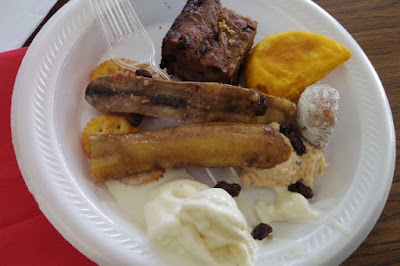 |
| After the service was over, everyone was invited to taste delicious Cuban foods. Here is a bunch of recipes to be downloaded.
The next World Day of Prayer is scheduled for March 3rd, 2017. The theme is “Am I being unfair to you?” The women of the Philippines are preparing the service. |

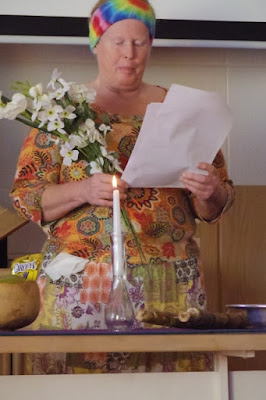
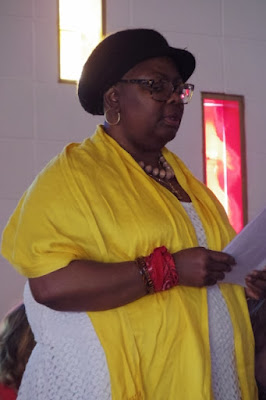
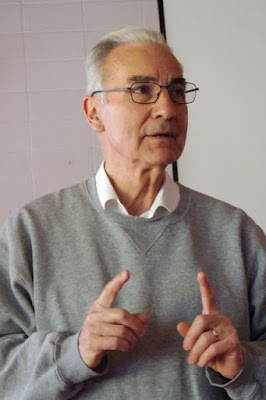
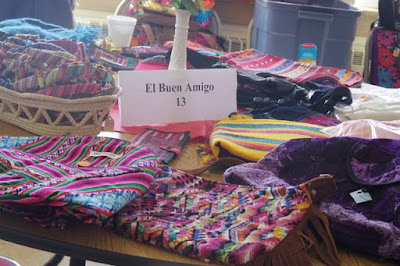
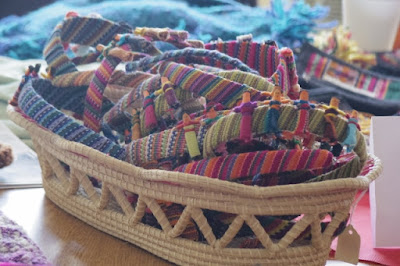
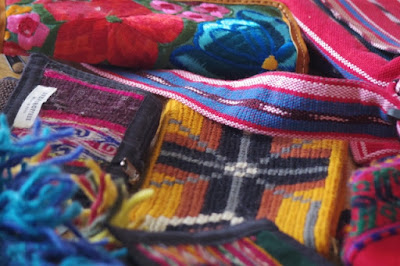
Thank you-so interesting. I saw a recent Anthony Bourdain program on CNN. Showed so much run down buildings and beat up cars from the 1950's. The embargo should have been lifted years ago.